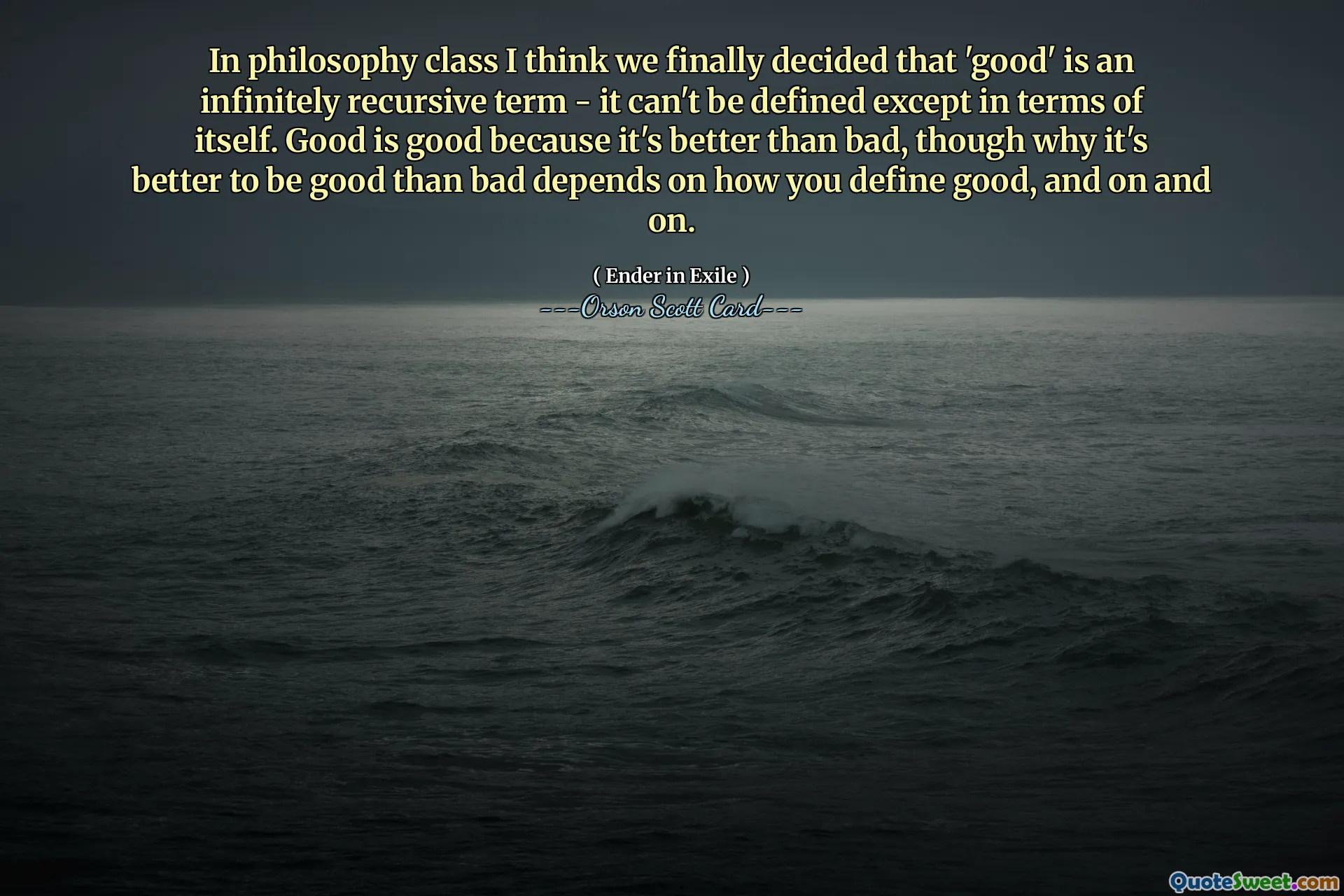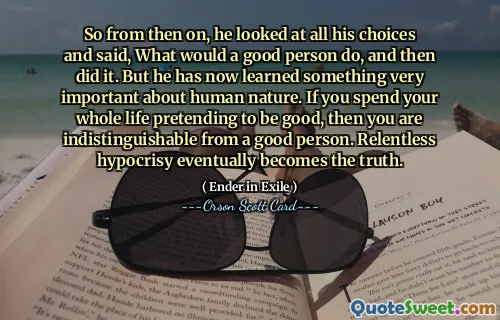
In philosophy class I think we finally decided that 'good' is an infinitely recursive term - it can't be defined except in terms of itself. Good is good because it's better than bad, though why it's better to be good than bad depends on how you define good, and on and on.
In a philosophy class discussion, the concept of 'good' emerged as a complex and recursive term that defies simple definition. It reveals that understanding 'good' relies on its comparison to 'bad', yet this comparison itself is influenced by individual interpretations of goodness. The cycle of defining good based solely on its own terms illustrates a philosophical challenge that lacks a definitive resolution.
This exploration denotes that our perception of morality can be deeply subjective, with each definition shaped by personal beliefs and societal norms. As such, it creates an infinite loop where one's understanding of good continually references itself and varies from person to person, making it a profound and intricate topic within moral philosophy.











